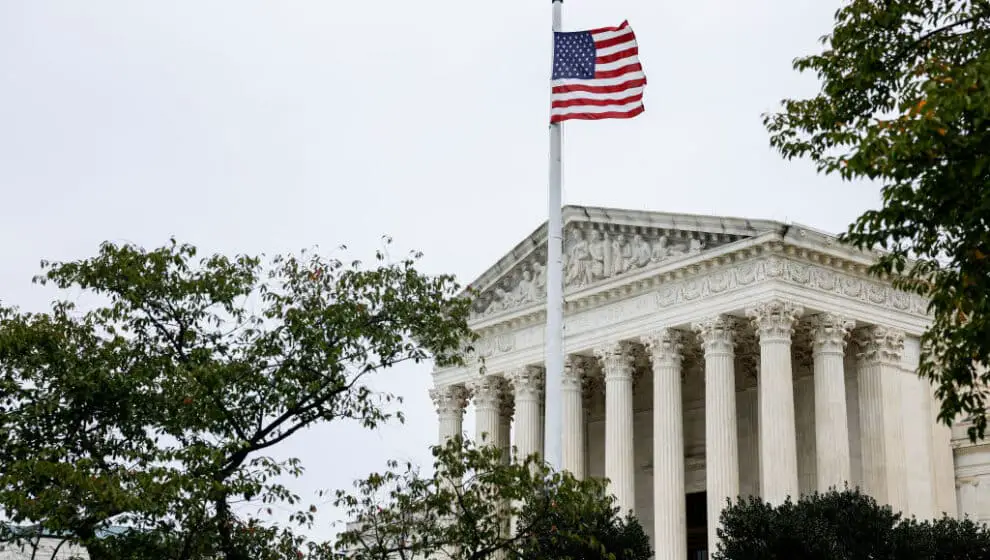These upcoming Supreme Court decisions could set precedents on business regulation, diversity, and interstate commerce.
Key Details
- Axon Enterprise v. Federal Trade Commission will be heard on November 7 and challenges the legality of the FTC’s merger review of a company that produces police body cameras.
- On the same day, Securities and Exchange Commission v. Cochran will challenge the structure of the FTC and its administrative procedures following an accusation of misconduct by an accountant, The New York Times reports.
- Mallory v. Norfolk Southern Railway will be heard on November 8 and concerns which states they can and cannot be sued within.
- National Pork Producers Council v. Ross will be heard on October 11 and challenges the state of California’s animal cruelty laws and interstate commerce laws that prevents the sale of pork under specific farming conditions.
- The court will also be hearing two major social issue cases with implications for business—including a challenge against Harvard’s affirmative-action programs and a challenge from a Colorado web designer seeking free speech protections so he doesn’t have to create pro-same-sex marriage-related materials.
Why it’s important
These different cases could result in major changes. The defendants of these arguments are seeking greater protections and redress against federal impositions on business law, farming laws, interstate commerce, and freedom of expression for controversial political positions.
The cases against the FTC and government could provide greater leniency for small businesses and private business owners, while Mallory may make it easier for lawsuits to be filed against corporations outside of the state they are based in which can have implications for how easy or difficult it is to file lawsuits.
Backing up a bit
Several of these laws have the support of President Joe Biden and major corporations.
“In a brief supporting the [Norfolk Southern] railroad, the Biden administration said the Pennsylvania law ‘subverts interstate federalism by reaching beyond Pennsylvania’s borders and allowing state courts to hear cases in which Pennsylvania has no legitimate interest,’” says The New York Times.
“[In defense of diversity hiring,] a brief supporting the universities filed by scores of companies, including Apple, General Motors, Google, Meta Platforms, and Starbucks, said they relied on leading colleges and universities to train diverse leaders and that ‘racial and ethnic diversity enhance business performance.’”
“The pipeline of highly credentialed minority candidates would tighten, defenders of the programs argued, and, depending on the logic of the ruling, employers’ diversity efforts could be challenged under a federal law prohibiting workplace discrimination.”
